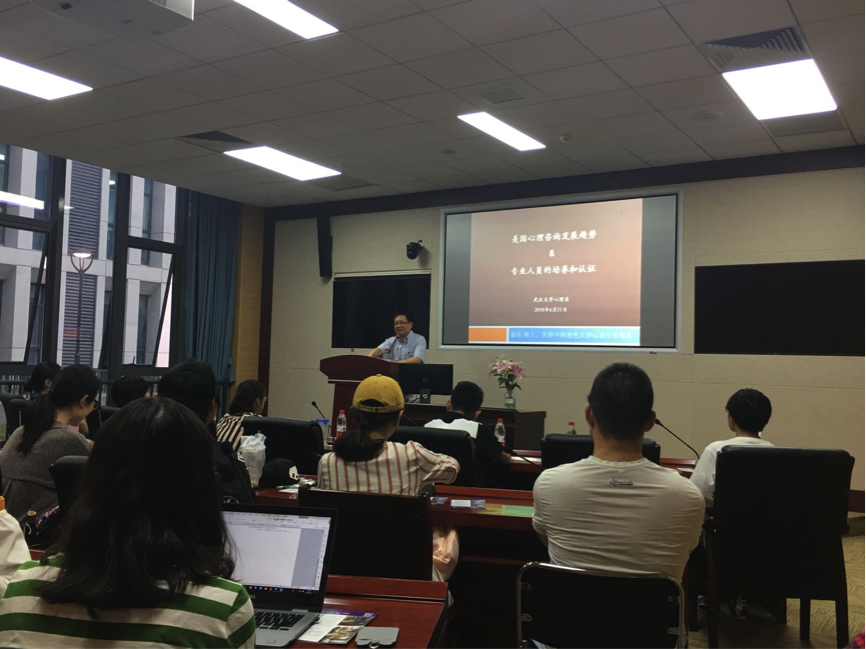On June 11th, Dr. Xie Dong from the Department of Psychology and Counseling at the University of Arkansas, USA, gave a lecture on the topic of “Development of American Psychological Counseling and Certification of Professionals” at B214, the School of Philosophy.

In the first part of the lecture, Dr. Xie Dong mainly introduced the trend of development in the field of psychological counseling in the United States, thus providing reference for the development of psychological counseling in China. Since the questioning of the validity of psychological counseling in the 1950s, after years of research and exploration, counselors have proved the absolute validity of psychological counseling and the relative effectiveness of psychological counseling. The rise of the common factor theory (Lambert, 1992; for example, consulting relationships, consultant characteristics, visitor characteristics, etc.), Evidence Based Treatments (EBTs), and the influence of positive psychology such as model transformation, also brings new theories and orientations for psychological counseling. Dr. Xie Dong particularly emphasized that as a psychological counselor, it should have a multicultural outlook. For China's enlightenment, He expressed that he hopes to bring about a more open perspective and orientation in the future instead of paying too much attention to traditional therapies.
The second part of the lecture focused on the growth and development of psychological counselors. The process and stages of the development of the psychological counselor were introduced. In terms of training, Dr. Xie Dong emphasized the competency of the psychological counselor and integrated healthcare. That is, the counselor should engage in and understand more extensive medical and clinical knowledge. The lectures briefly introduced the core qualifications of the American Psychological Consultant Training Program and the qualifications of the psychological counselors at each stage of the US state. Dr. Xie Dong vividly demonstrated the specific application of psychological counseling diagnosis and treatment in combination with psychological counseling methods and cases in the United States and China. He particularly emphasized the scientific awe and scientific attitude as a psychologist, and the integration of self-awareness, knowledge, and psychological counseling skills in a multicultural environment.
In the end he introduced the applications and admissions of the relevant schools and doctoral programs. It was necessary to pay attention to the discipline (Clinical Psychology, Counseling Psychology, School Psychology), and the category of the Ph.D. and Psy.D, as well as the corresponding application procedures, materials and resources.

In the questioning session of the lecture, the students and teachers also actively asked questions about their own concerns, and had a lively exchange and discussion with Dr. Xie Dong.



